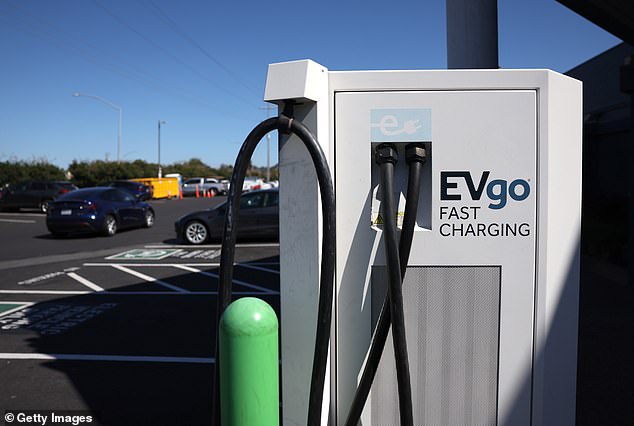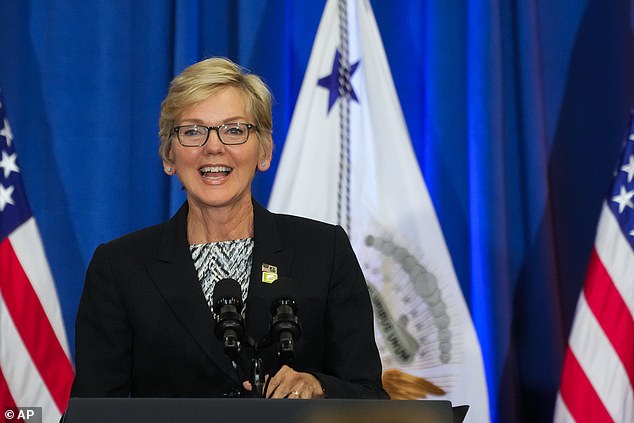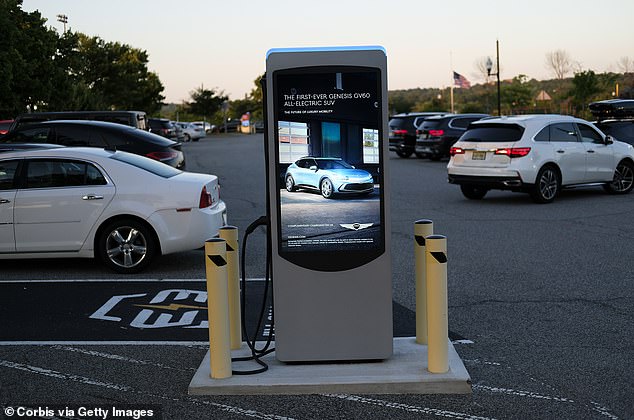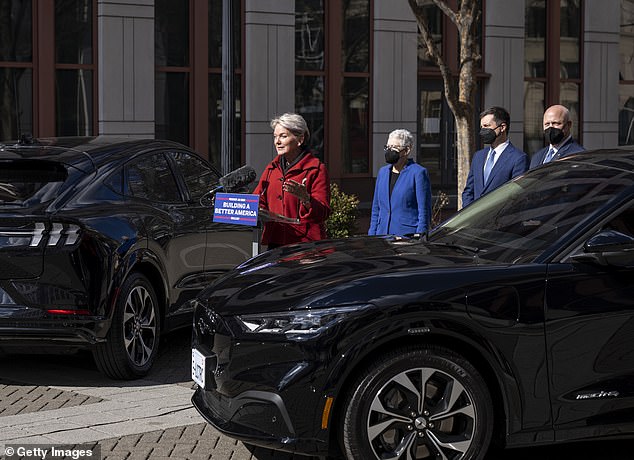Angry family calls cops on Biden’s Energy Secretary’s staff after they blocked a charging station during a four-day road trip to promote green energy
A Georgia family was forced to call police after Energy Secretary Jennifer Granholm’s staff blocked an EV charging station during an effort to promote green energy.
Granholm’s four-day trip from North Carolina to Tennessee was intended to “draw attention to the billions of dollars the White House is pouring into green energy and clean cars,” according to an NPR story about the drive.
One problem Granholm staff faced is that there are still too few charging stations nationwide for electric vehicles to be as reliable a choice for most Americans as gasoline cars.
This issue became a very tangible reality for Granholm staff when, outside Augusta, Georgia, a family in an electric vehicle confronted staff for blocking a spot at an electric vehicle charging station with a gasoline-powered car.
According to Camila Domonoske, who is the NPR piece“An Energy Department employee attempted to park a non-electric vehicle at one of those working chargers to reserve a spot for the incoming Secretary of Energy.”
‘That was not well received: a normal gas car blocked the only free spot for a charger?’ she continued.
‘In fact, a family who were left outside with a baby in the car on a sweltering day were so distressed that they decided to get the authorities involved.’
Energy Secretary Jennifer Granholm took an electric vehicle trip through several Southern states, at one point leading a family to call the police on her staff

The incident occurred when Granholm staff attempted to use a gasoline-powered vehicle to cut off an EV charging station from the secretary’s approaching vehicle.
The sheriff’s office ultimately couldn’t do anything because it’s not illegal for a non-EV to claim a charging spot, at least not in Georgia.
But the optics were bad, and Energy Department staff tried to resolve the situation by rerouting several vehicles so that Granholm’s and the family’s cars could charge at the same time.
The author of the NPR article, who drives electric himself, says he understands “how easy it can be to charge when everything is going well and how annoying it can be when things are going badly.”
“As I rode along with Granholm, I came away with an important conclusion: EVs that aren’t Teslas have a road trip problem, and the White House knows it’s urgent to solve this problem.”
Electric vehicle drivers with home charging stations can broadly avoid the kind of situation Granholm found himself in in Georgia.
But even electric vehicles currently marketed as “affordable” to the public start at more than $27,000. Most models remain unaffordable for the average American family.
The price tag attached to most electric cars, combined with the frustration of too few charging stations, is in stark contrast to Granholm’s stated desire to “make it super easy for people to travel long distances.”
Granholm’s own carefully planned trip is a testament to how things can still go wrong for EV drivers, even those with the resources of the Department of Energy behind them.
In addition to the Georgia family incident, Granholm’s clean energy column came across a dead-screen charger in Grovetown, Georgia.
In Tennessee, the EV the NPR journalist was driving failed to charge efficiently. Electrify America, an EV charging network, said the slow charging was not an isolated incident, but rather an issue that has occurred on a number of charges due to a faulty component.

Granholm has previously touted the Biden administration’s significant financial commitment to building out America’s EV infrastructure

There aren’t enough EV charging stations in the US, and some don’t function particularly well

Since the beginning of her tenure at the Secretary of Energy, Granholm has pushed for a federal commitment to electric vehicles
However, the Energy Department is defending its ambitious (and expensive) plan to strengthen the country’s EV infrastructure.
“While our global competitors prepared for the clean energy transition for more than a decade, America lagged behind,” the ministry said in a statement.
“Now, with President Biden’s historic Investing in America agenda, we have over $7 billion to build out convenient and reliable EV charging infrastructure, some of which has already been allocated to each state, DC and Puerto Rico.
“The private sector is following suit with equally ambitious investments: growing our workforce and keeping money in the pockets of hardworking Americans.”
